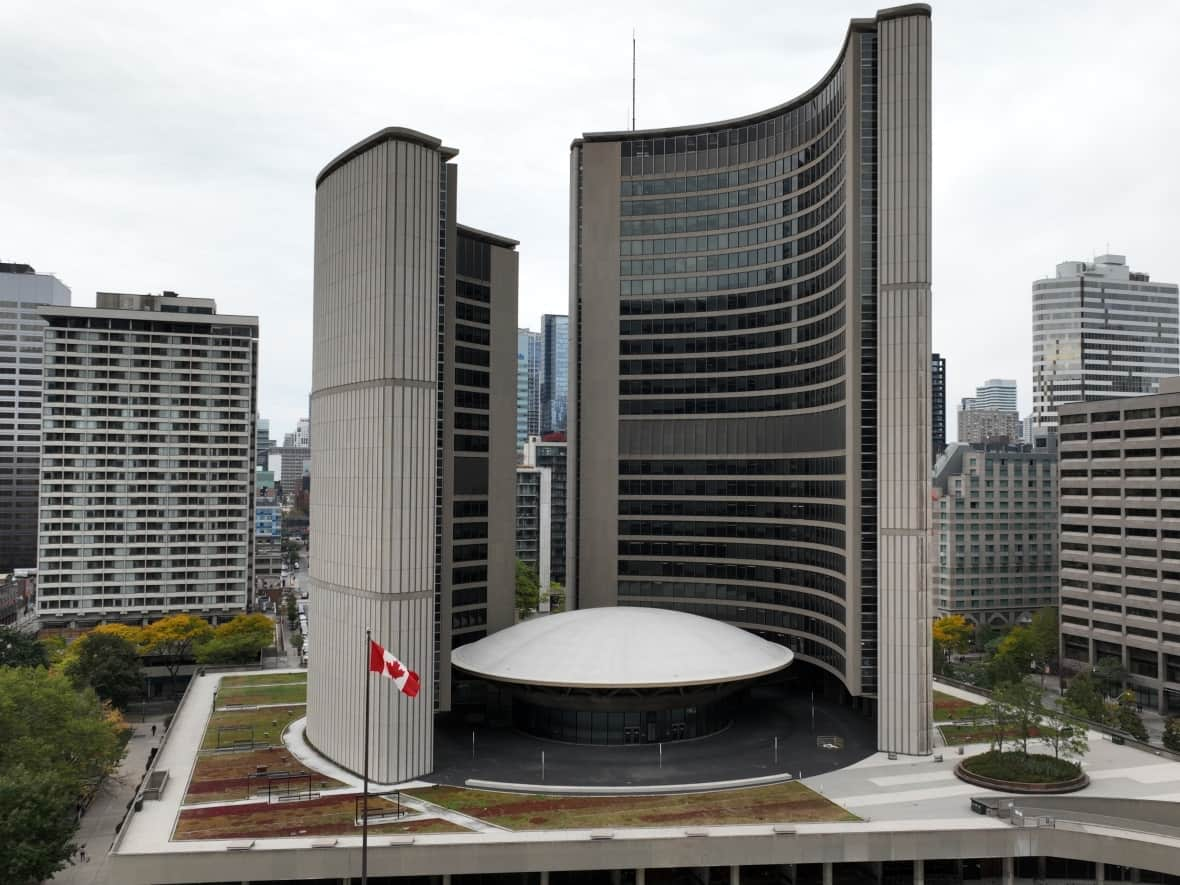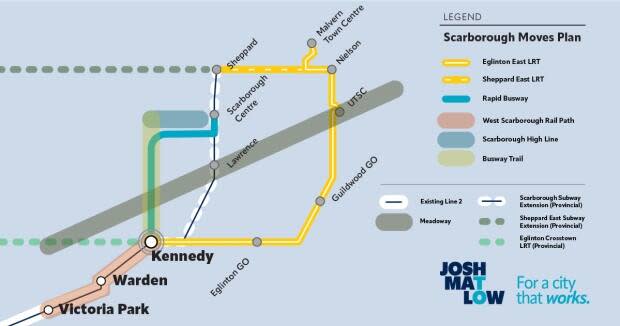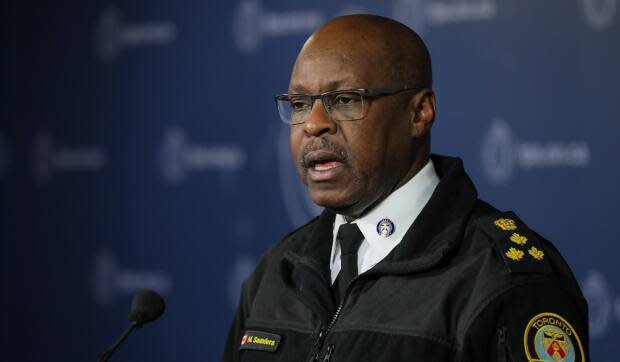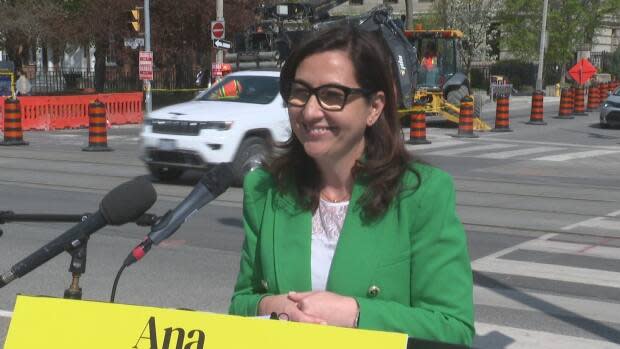Transit and traffic: What candidates talked about on Toronto's mayoral campaign trail Tuesday

Improving Scarborough's public transit, bike lanes and rush-hour traffic took centre stage in Toronto's mayoral race on Tuesday.
City councillor Josh Matlow announced his Scarborough Moves plan, which would create a network of light-rail transit (LRT) lines, a busway and cycling and walking trails in the neighbourhood.
City councillor Anthony Perruzza said Tuesday that if elected, he would immediately build the Scarborough busway, something Matlow also promised.
Meanwhile, Ana Bailão delivered an announcement on reducing traffic in the city and Mark Saunders shared his plan to remove existing bike lanes on University Avenue.
There are 79 candidates running for Toronto's top job in the June 26 by-election. Here's more on what the candidates talked about on Tuesday.
How will Matlow's plan move Scarborough?
Matlow said his plan for Scarborough is a combination of transit lines and active trails that residents and politicians have long supported but were never realized.
"I'm putting it together in a way that actually works and connects for Scarborough residents," he said.
Of the approximate $4.7-billion the network would cost, $4.65 billion would be for two LRT lines with an additional $58.6 million for a busway and $30 million for active trails, he said.
That $4.65 billion for LRTs is broken down into three parts: $1.2 billion already earmarked by the city; the $1.125 billion Matlow announced today, which would be made up of money from his climate-action levy that would tax commercial parking lots; and $2.325 billion from the provincial and federal governments that Matlow would pursue.
The two LRTs would stretch from Kennedy Station to Malvern Town Centre and McCowan subway station to Neilson Road, respectively.

The busway would run buses on the separated corridor used by the Scarborough RT, which is set to be out of service in the fall. A city council motion to do that was approved in 2021 but city staff have recommended on-street buses instead, Matlow said.
The $58.6 million for the busway would come from $586 million saved by rebuilding the "crumbling part" of the Gardiner Expressway east of Jarvis Street on ground level, according to the news release. Olivia Chow shared a similar plan last week.
The $30 million for walking and biking trails would come from the climate-action levy over two years, Matlow says. That funding should be sufficient for the trails in tandem with money sought from the federal government's active transportation fund, according to the release.
Bike lane debate rages on
Former police chief and mayoral candidate Saunders said Tuesday he would remove the existing bike lanes on University Avenue and immediately suspend bike lane expansions to implement a new consultation approach.
"This isn't about being anti-bike lane. I'm not against bike lanes," Saunders said in a news release. "But what I won't stand for is putting them on major arteries that are already paralyzed by congestion."
Saunders criticised city councillors for spending money on bike lanes while citizens face safety concerns on the TTC and affordability issues.

"We don't have our priorities straight anymore," he said.
Saunders's fellow mayoral candidate Anthony Furey criticized the announcement.
"Copycat Saunders is at it again," he said in a news release. He called Saunders's bike lane policy "almost identical" to one Furey previously shared that included removing bike lanes on University Avenue.
Bailão pledges to get tough on lane blockers
Former city councillor Bailão also shared some ideas on de-clogging the city's major arteries on Tuesday.
Last summer, the city conducted blitzes to focus on vehicles blocking intersections and compliance with traffic signals. Bailão wants to see the blitzes continue, she said Tuesday.
"I will be making them permanent and citywide," she said. "And increasing enforcement with twenty additional tow trucks ready to tow lane blockers ASAP."

Bailão would implement red-light cameras to catch drivers who stop in an intersection after the lights have changed.
"I will also support ongoing efforts to significantly increase ticket costs for this bad behaviour to improve safety," she said.
In late March, city council passed a motion to call on the province to increase the fine for improperly stopping in an intersection from $85 to $450.


